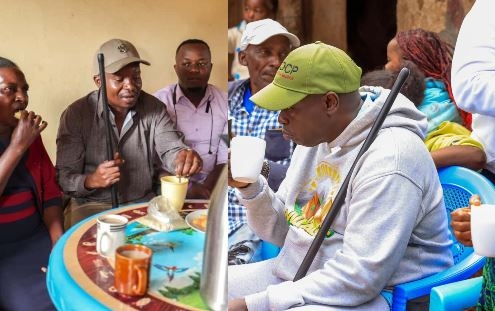Does your neighbour or family member in fits of anger beat up their spouse or children and destroy their property?
Do you sometimes feel helpless about what you could do to rescue the situation?
The government will soon require you to report these acts and seek protection for the persons under attack.
In tough new rules to operationalise the Protection Against Domestic Violence Act signed in 2015, the state wants perpetrators to pay the spouse or child for meting such acts of violence and destroying property.
In the proposed rules, domestic violence is taken to include physical, sexual, emotional, social, verbal, spiritual, and economic abuse.
"Where there is personal injury, financial loss, trauma, psychological damage, damage to movable or immovable property, or any possibility of such damage or loss as a result of an act of domestic violence, the complainant may file a claim for compensation," the Protection Against Domestic Violence Rules, 2020 reads.
Where the person accused of meting violence is an employee, compensation will be required of the employer.
It will also be applicable where violence leads to trauma, psychological damage, and damage to movable or immovable property.
An affected spouse or child may file a claim for compensation where there is any possibility of damage or loss as a result of an act of domestic violence.
The rules provide that “any person who suspects that violence is being or has been committed can complain to a police officer or any person in authority.”
The rules which were drawn by the Chief Justice will be in force after ratification by the National Assembly.
They will first be sent to the Delegated Legislation Committee who will have 90 days to prepare a report to be adopted by Parliament.
Committee chair William Kamket confirmed they will consider the rules when they get them as "they must pass through the committee."
Compensation may be worse in cases where the courts have issued protection orders to the victims.
Any person who suspects that violence is being or has been committed can complain to a police officer or any person in authority
To the advantage of the victims, the stringent rules provide that applications can be done within three years.
"Where any party suffers injury, damage or loss the courts will award compensation as it deems just.”
“A party claiming compensation shall provide proof of actual or projected loss or damage incurred by way of an affidavit,” the rules read.
The court may make an order for lump-sum payment or monthly payments of compensation, within six months.
Compensation orders will be served to parties and enforcement officers in whose jurisdiction the respondent ordinarily resides or works.
The mainstream media has extensively covered cases of violence at home.
In December 2019, a woman descended on her husband's car and smashed its windscreen out of anger.
Residents of Ngumba Estate watched in disbelief as the woman damaged the vehicle ostensibly to teach her "cheating" husband a lesson.
In the same week, another woman destroyed her husbands’ car in Kirinyaga, claiming the vehicle attracted other women.
In 2018, a Mombasa woman was caught on tape smashing her boyfriend’s new Mercedes Benz, walking on its roof while screaming obscenities.
News of married and cohabiting couples hurting or killing each other in bitter domestic brawls are commonplace.
President Uhuru Kenyatta recently ordered a probe into the scourge.
The President said increased tensions within homes had escalated gender-based violence, mental health issues, and teen pregnancies.
“If the family is under attack, the state is under attack. If the family is weak, the country is weak,” the President said in a televised address then.
The National Crime Research Centre was directed to probe the cases and file a report in a month.
The National Gender and Equality Commission estimated that Kenya loses Sh48 billion annually as a result of domestic violence.
Audit firm KPMG in 2019 estimated that Kenya loses Sh5 billion from domestic violence meted on working women.
Ministry of Health data shows 16,000 cases of domestic violence were reported in July 2020; 11,700 in July 2019 and about 8,000 in 2018.
Since the numbers could be higher, the rules compel police officers who receive such reports to assist the complainants.
Police will equally be compelled to assist if the victim of domestic violence is a child or physically, mentally, intellectually, and sensory challenged person.
“A complainant may authorize his or her representative to apply for an order of protection on his or her behalf,” the rules read.
Affidavits signed by complainants will be required to state the relationship between the parties in the case.
Also factored in is the age of the complainant; disability and facts relied on in the case.
Courts, in their decisions, will consider if there was any violence inflicted by the accused persons in such a case.
Judges will also consider if violence is inflicted on the dependants by either the accused persons or the person reporting the case.
Also of consideration would be whether the respondent or applicant has been convicted on an offence that involves violence or threat of violence.
Courts would also check the age and state of health of the applicant, respondent, or any dependent; perception of risk to safety to the behaviour of the parties.
Evidence of deterioration in the physical, psychological or emotional well-being caused by the behaviour of the other party would be needed.
Judges would also consider any incidents of substance abuse, including abuse of alcohol, by perpetrators, respondent, and or any dependent.
The courts may also issue show-cause notices to perpetrators to explain why orders of protection shouldn’t be issued against them.
(edited by o. owino)
















